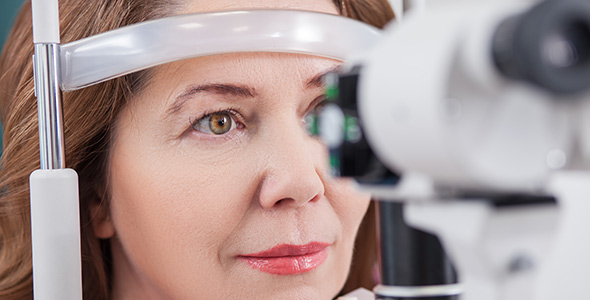Your eyes are your window to the world and if you take care of your eyes… they will take care of you right back. This is why choosing the right kind of eye doctor for you and your own specific needs is such an important decision. Knowing the different kinds of eye doctors before you schedule an appointment can also save you a lot of time and money in the long run. If you need services that a particular eye doctor does not handle, you will then be paying for two office visits and many times, if the doctor does not provide the kind of service that you need, you may also be driving farther for a specialist who can better suit your needs.
There are three types of eye care providers and because they all have a similar sound; it can be a little confusing picking the right one. This useful guide will help you to learn more about what each Houston provider offers so that you never have to bounce around from office to office looking for the perfect fit unnecessarily.
All About Optometrists
This type of eye doctor has achieved a Doctor of Optometry degree. This basically means that this provider can examine eyes, look for vision and health issues, as well as provide corrective eyeglasses and lenses when necessary. There are also optometrists who may offer vision therapy or low vision care, an alternative form of care that can provide help for those whose vision loss is too severe to be correctable by lenses, glasses or surgery. If you are considering eye surgery, such as LASIK, or other corrective procedures, you should consider an ophthalmologist who can provide the surgery that you need. However, pre and post-surgery care can be given by an optometrist eye doctor in most cases.
A Houston optometrist completes a four-year college program in the field of science, as well as another four in post-graduate in the field of optometry. While, an optometrist does not require as much schooling as an ophthalmologist, these eye doctors are required to continue their education indefinitely to stay up to date with current treatments and to keep their licensure as a provider.
All About Ophthalmologists
An ophthalmologist is an MD or DO eye doctor who specializes in the field of vision and eye care. Basically, if you are looking for almost any kind of care, an ophthalmologist can provide it; however, you should consider that your insurance may bump up your office fee if you have a plan where specialist appointments cost a little more. Your ophthalmologist can treat and diagnose diseases of the eye, perform surgery, write scripts for medication, as well as prescriptions for whatever corrective eyewear or contacts that you require.
This type of eye doctor will complete four years in college, then another four in medical school, one year on an internship, and also a three-year minimum residency at a hospital in their specialty. With a vastly more pronounced educational requirement, it is easy to see why an ophthalmologist can provide such a wide range of care for any eye related problem that may arise in your life.
All About Opticians
It is important to note that an optician is not an actual eye doctor; however, they also play a vital role in helping patients maintain overall vision health. Opticians are a great choice when you only need glasses or contacts. Your optician will examine your eyes and, if you require corrections, submit a prescription that is written by an optometrist or ophthalmologist. This does not mean you will be running about to other offices. It is all handled behind the scenes, quickly and same day. Opticians also tend to cost less than other forms of eye care providers.
Most states require that opticians achieve formal training, but not every state has this requirement. Some opticians do not require any formal certification or training. You can check your state’s requirements if you are looking for a certified optician; yet, many practicing opticians may not have this if it is not required… and in 99.9% of cases, this does not make them any less effective at their job.
Who Should I See?
If all you require is a simple fitting and script for glasses or contacts — go with an optician. It will save money, especially if you don’t have insurance. If you want to be safe about it, go with an optometrist. The optometrist can treat dry eyes, eye infections, and in some cases — glaucoma. If you have other health issues with your eyes that are not commonplace, both the optometrist and the optician will send you to an ophthalmologist anyway. Lastly, if you have macular degeneration, cataracts, moderate to severe glaucoma, or other medical problems with the eyes, you should go ahead and schedule an appointment with an ophthalmologist. They will be able to diagnose, as well as treat, any medical eye problem that you may have. Remember that an ophthalmologist is also your ‘go-to’ eye doctor for surgical procedures. Once you have had the treatment that you need, and your eye problem is managed, you will then be sent back to your optometrist, which can provide you with lasting care.
Insurance and Eye Doctors: What You Need to Know
Your insurance may dictate who you can see in network, and because there is a bevy of prevalent eye doctors in Houston, you should have no trouble finding one you like. Fortunately, most eye doctors accept nearly every vision plan available in your area. However, if you want the best in vision care, and you need to see a premier eye specialist in Houston, then look no further than Dr. Goosey of Houston Eye Associates. This pristine group of eye care specialists have been providing a full gamut of vision care services and treatment procedures for 40 years. From innovative LASIK and cataract surgery, to corneal transplants, glaucoma, corrective lenses and dry eye conditions, they accept most insurance programs and are here for you.






